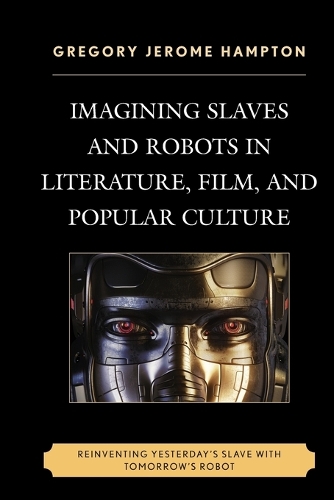
Imagining Slaves and Robots in Literature, Film, and Popular Culture: Reinventing Yesterday's Slave with Tomorrow's Robot
(Paperback)
Publishing Details
Imagining Slaves and Robots in Literature, Film, and Popular Culture: Reinventing Yesterday's Slave with Tomorrow's Robot
By (Author) Gregory Jerome Hampton
Bloomsbury Publishing PLC
Lexington Books
20th July 2017
United States
Classifications
Tertiary Education
Non Fiction
Literary studies: general
Film history, theory or criticism
Popular culture
Slavery, enslaved persons and abolition of slavery
700.452
Physical Properties
Paperback
110
Width 152mm, Height 228mm, Spine 9mm
186g
Description
Imagining Slaves and Robots in Literature, Film, and Popular Culture: Reinventing Yesterday's Slave with Tomorrow's Robot is an interdisciplinary study that seeks to investigate and speculate about the relationship between technology and human nature. It is a timely and creative analysis of the ways in which we domesticate technology and the manner in which the history of slavery continues to be utilized in contemporary society. This text interrogates how the domestic slaves of the past are being re-imaged as domestic robots of the future. Hampton asserts that the rhetoric used to persuade an entire nation to become dependent on the institution of chattel slavery will be employed to promote the enslavement of technology in the form of humanoid robots with Artificial Intelligence. Imagining Slaves and Robots in Literature, Film, and Popular Culture makes the claim that science fiction, film, and popular culture have all been used to normalize the notion of robots in domestic spaces and relationships. In examining the similarities of human slaves and mechanical or biomechanical robots, this text seeks to gain a better understanding of how slaves are created and justified in the imaginations of a supposedly civilized nation. And in doing so, give pause to those who would disassociate Americas past from its imminent future.
Author Bio
Gregory Hampton is associate professor of African-American literature and is the director of graduate studies in the department of English at Howard University.
